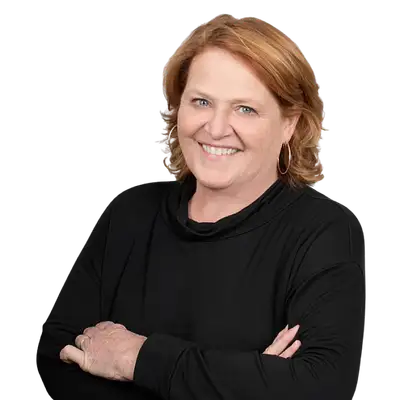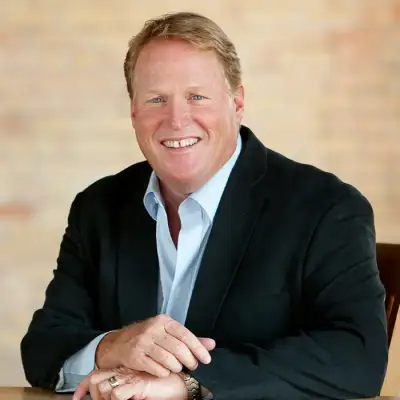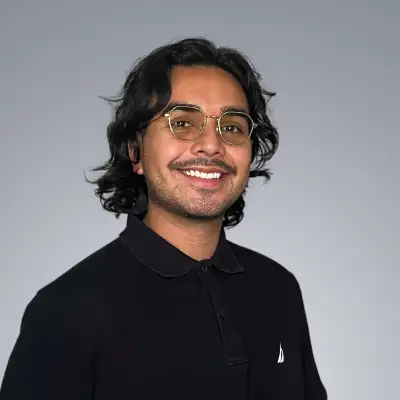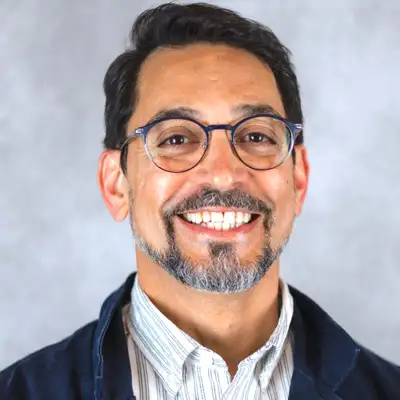To find out more about the One Country Project, visit our website.
Creators and Guests


What is The Hot Dish?
Former U.S. Senator Heidi Heitkamp and her brother, KFGO radio talk show host Joel Heitkamp, engage in animated discussions with newsmakers, elected leaders, and policymakers who are creating new opportunities for rural Americans and finding practical solutions to their challenges. Punctuated with entertaining conversations and a healthy dose of sibling rivalry, The Hot Dish, from the One Country Project, is informative, enlightening, and downright fun.
Heidi (00:04):
Welcome to The Hot Dish, comfort food for rural Americans. This is Heidi again. And it's hard to believe, but this is our last episode of 2023. And I want to say, Joel, thank you so much for doing these conversations with me. It's been a lot of fun. It's a lot more fun than listening to myself talk, and I know you don't probably believe that, but it is true.
Joel (00:26):
Actually, I do believe that. Heidi, as we close out the year, there's no one that I'd rather talk to than my favorite nun, Sister Simone Campbell. She spent a lot of 2023 going all across the real south, talking to everyone about their faith, their work, and what's on their minds.
Heidi (00:43):
We're going to hear from Eric Olesen, the owner of O&H Bakery in Racine, Wisconsin. And if you don't know what a Kringle is, you're in for a treat. You won't be able to eat it, but he's going to talk about how he makes it and he and his family have been making them now for three generations.
Joel (01:01):
I don't know if I like this or not. I'm hungry.
Heidi (01:03):
Well, Joel, people think that maybe you've never passed a watering hole without going in. You've never passed a bakery.
Joel (01:14):
There's some truth to that. Here's the good news for you. The deer sausage is done, so you're-
Heidi (01:18):
Well, good.
Joel (01:19):
... going to enjoy that as well.
Heidi (01:20):
Is it too hot again? Do you put too much spice in it, Joel? We're just simple people. We don't like all that heat.
Joel (01:26):
And that's the great thing about America. It's one of the things I love about America. You don't have to eat it.
Heidi (01:34):
This time of the year, the best thing is family getting together but admit it, you like presents. You like it when people get you something. I like something, something.
Joel (01:44):
I like it when they get me something I like. Normally, the kids say, "What, dad? Just say it. What?" Well, this year I did. I want a new floor jack for my shop. And so we'll see how that goes. And that's going to be the best thing I ever got since my Red Ryder BB gun, Heid.
Heidi (02:01):
I remember the BB gun actually. And that was before that movie came out, so it made it even more interesting. But what is the best present you've ever gotten and what's the worst present you've ever gotten?
Joel (02:15):
I'd say that Red Ryder BB gun by far the best present I had the most fun with. Still have it to this day, still shoots to this day. I would say the worst was the dog. Mom and dad were busted. They were broke and they got a dog that they gave to the bottom three kids, me and my two sisters, Melanie and Holly. And Melanie decided it was her dog. So me and Holly were on the outside looking in. That was the worst present I ever got.
Heidi (02:41):
That dog was a fixture for years. I buried in my backyard in Mandan, and I think that dog lived to be 20 years old.
Joel (02:49):
Yeah. I know Darwin's a very, very, very good gardener, your husband. And 20 bucks says that spot doesn't grow anything. That dog was mean.
Heidi (02:58):
Yeah, only mean to you. Only mean to you. So if you look at Christmas and you mentioned our folks were many times just broke and I remember it was just so exciting to get up in the morning and look under the tree. We were one of those Christmas morning families where you got your present and then you walk out and it's like a box of colors. Okay. I don't even color. I was never a good colorer.
Joel (03:24):
But they always made it fun. They hide it.
Heidi (03:26):
They did.
Joel (03:27):
And the one thing about Christmas Day that was really good for me and for you, Heid, I'm sure is the fact that we went to Christmas mass on Christmas Eve. So when we got up in the morning, we had that job done.
Heidi (03:46):
Sister Simone Campbell received the Presidential Medal of Freedom from President Biden in 2022. She received that medal because she has been a long time and an enormously joyful advocate for so many issues that affect so many people, including hunger. And she's here today to talk about a new project she has to connect with rural Americans. Sister Simone, welcome back to The Hot Dish. It's great to have you back on.
Simone Campbell (04:17):
Oh, I love being with you. Thanks for the invitation.
Heidi (04:20):
So tell us a little bit about what you've done since the last project that you worked with one country on and what you hope to learn and maybe teach others about going forward.
Simone Campbell (04:34):
Well, the thing that I've realized is that two aspects. One is the big urban rural divide where we don't really know each other across that divide, and we have judgments about each other. And then the second piece is the north-south divide. And so what I've been working on is developing relationships with people who live in the south, especially the rural south. And so much of the south is in fact in a rural setting that I think both descriptors of the challenges really apply in the south. So I've been trying to be an understanding ear and a curious inquisitor.
Heidi (05:19):
So my question is, if you had to describe one myth about the south that you think people in the north or people in particularly urban areas have about the rural south, what do you think that myth is and how do you think we can bust it?
Simone Campbell (05:38):
Well, I think there's a general attitude or assumption that people in the rural south are uneducated and my discovery is that that's not true. In fact, we were in Columbus and several people had convened from outlying areas, some up from the Mississippi Delta. And they were talking about how the schools really are a lot better than what they're advertised in the local community. But what they don't have is enough funding to have good labs, so science labs at a high school level. And so one of the constraints is not so much education as the financing of educational opportunities especially STEM students in the process. So I learned that school is more than books, school is also opportunities for learning basic science strategies. So I think we sometimes think people just don't care. That's not true.
Heidi (06:41):
I want to flip that on its head and ask you what do you think is the biggest myth the south has about, let's say the Great Plains or New York City? What does the south think about us and how can we better address and bust those myths?
Simone Campbell (07:00):
Well, I'll tell you. The one I ran into all the time is, and I don't know if it's a myth, Heidi, quite frankly that the south is being judged by the north as being lacking, wanting, and not worth the effort. And when I came back from my touring, a bunch of my friends in the DC area said, "Well, they really aren't worth it, are they?" And I discovered that it's not a myth, it's actual judgment that's happening because we don't know each other, because we don't have conversations and learn what people care about. And so learning how in the south, people say, well... One of the first questions, "Oh, who are your people?" There's an assumption for long-term connections. Second is what church do you go to? I, as a Catholic sister, thinks that's a nice question to ask. I would never ask it in the north, but it's a interesting way of trying to get at what people care about. And so the actual southern curiosity for relationships, I think is something we in the north could really take seriously.
Joel (08:05):
Joel here. And I got to tell you, it's hard to break through when a man has five sisters and be one of his favorites. And I realize you're a nun, but you are one of my favorite sisters. You talk about the divide, there's an urban rural. I realize there's a north-south, there's political divide through it all. But we've been talking about this for a long time, and I guess you're an optimist. I mean you're out there trying to change things and make it better, and I respect that immensely, but I'm more of a realist. Are we ever going to change that?
Simone Campbell (08:42):
Well, it changed it for me. So I think we do it one person at a time. It's not like a magic wand, Joel. There's no magic wand in this. It requires some curiosity and hard work to open ourselves up to people who think differently. Just think of the friends that you have. It takes time to build friendships. And so do we take time with others that we more likely would want to treat with judgment or prejudices? It's hard work, but I've discovered it's well worth the effort. It's really interesting.
Joel (09:16):
Well, I don't dispute that one bit and in fact that's a perfect answer. I would ask this, as you traveled the south and visited with people, how did they feel about the north invading the south? Because the fastest going states in the union are in the south, and mostly it's from the people in the north saying, "I'm going to move south." Whether it's Florida, whether it's Georgia, whether it's... Texas is a very fast-growing state.
Simone Campbell (09:43):
Well, I found out Texas doesn't think they're the south. That was one thing.
Joel (09:47):
Oh, really?
Simone Campbell (09:47):
And neither does Oklahoma. But anyway, apart from that, it is true that northerners are moving to the south, but more to Florida. And the people I met think that's part of the problem with Florida and then along the coast or the Carolinas, North Carolina. But one of the things that Northerners moving in bring is a move to face the future with some realism. One of the challenges in Mississippi, actually Mississippi was a state that broke my heart because they're the only state in the Sun Belt that lost population between the 2010 and 2020 census and they lost population. The people I met think, because they are still so oriented to the past. And the governor has this assessment that, well, if you just do away with taxes, that'll bring people in.
(10:42):
But if you do away with taxes and you have poor schools, you got terrible roads, terrible roads. It took me so much longer to drive through Mississippi than any of the other states, it was educational. But it's not about the individual economic, it's about the community and how is the state doing. And that's what they're discovering in Alabama, South Carolina. Hearing the story from Spartanburg, South Carolina, how in the demise of the textile industry in the '90s, their economy crashed. But they said what made a difference in the 2000s, early 2000s was they had a new mayor that had a vision and that leadership created community that brought people together. And now, they're a tech hub and a education hub and I don't know what else hub, but they're vibrant.
Heidi (11:33):
You approach everything that you do with such an open heart and such a curiosity. And you say, we need to get to know each other. A lot of people don't want to put in that kind of work. So how do we scale that up? We all can't be Sister Simone Campbell driving around the south saying hello with a happy face. And of course, people are going to talk to you because people gravitate to you because of who you are. But that's not the situation that we can scale up.
Simone Campbell (12:01):
Well, I mean I think it is. And then you get podcasts like this, you get opportunities. But the question really is, Heidi, are we frightened, or do we have curiosity? And I think fear makes us put up walls. And so we'll hunker down and hide, we'll believe the worst of ourselves. Or do we trust our experience which is much more positive? So there's little things like I advocate grocery store missionary work. The only place I ever stand in line anymore, it seems, is the grocery store. And you can just say to somebody standing behind you or in front of you, "I've been worried. I didn't really concerned about whatever it is." And ask people, "What do you think?" And I mean, the other day I did it in the grocery store. I'm really worried about the whole healthcare reality in DC is really up in the air right now and there's a lot of trouble.
(12:54):
And so I asked the person standing behind me if they've thought about the condition of healthcare. And the woman I was talking to didn't have health insurance. She couldn't even afford it on the exchange. And so you can do it if you just have open yourself up to the possibility of asking a stranger a question.
Heidi (13:12):
So if I can take this to a political level, because we're going into 2024, our politics have been marred, not just marked, but marred by politics of division. We seem to get ourselves elected not by having good ideas and joyful expressions of public service. We make ourselves electable by scaring the electorate about the other, you know, "Oh, you can't let that person takeover." And so I think some fear is warranted in some cases, and you probably imagine what I'm talking about. But I think it would be such an interesting experiment in this period of time in election where we are going to see so much fear-based politics to try and experiment of inspirational, aspirational public service. Do you think that's likely, sister?
Simone Campbell (14:11):
No, I don't think it's likely, but we can live in hope. But the thing is that it starts with us. The reason fear-based politicking is what's going on is because that's what people they're told, or people have been responding to. And Lord knows the polls have been really not very accurate the last few elections, but they still control how people campaign. And I mean for me, I think we're much better off as a nation if we stick with not blaming or name-calling or being divisive. But if we stuck with, how can we together create a better union? It's we, the people. We the people. It's us together.
Heidi (15:00):
Listen, sister, it's always great. And so I'm so excited and grateful for once again joining us on the podcast. Look so forward to what you can teach us all about opening up our hearts, opening up our ears, listening, and listening without judgment.
Joel (15:17):
Thank you to Sister Simone. Thank you very much. I hope you have a great holiday and Lord knows you've earned it.
Heidi (15:29):
Eric Olesen is a third-generation baker from Racine, Wisconsin, who knows a thing or two about baking for the holidays. Eric's ancestors took a Danish tradition, gave it an American twist, and Eric and his father have turned Kringle into a mail order phenomenon. Take a listen to this segment in his own words.
Eric Olesen (15:53):
My name is Eric Olesen. I'm president and co-owner of O&H Danish Bakery. You can see he's taking a full rack of Kringle out. There's 80 Kringle in that oven right now. It takes about 20 to 23 minutes to bake and smell it. You feel the heat. The Kringle is a Danish pastry first and foremost. This craft of making this pastry was brought to Racine from Denmark. And a lot of Danes to this day, they'll call it a Kringler instead of a Kringle. So the Danish bakers made this product using a dough that is called the [foreign language 00:16:30]. This particular dough is not like a croissant dough. It's a much richer and sweeter dough than a croissant. And the shape was a very unique pretzel shape. And so they were getting all sorts of customers and they were being asked, "Okay. Can you make that wonderful pastry but in a different flavor?" I don't want to serve just the almonds or whatever. They wanted variety of flavors. So flavors were added, all sorts of flavors. Apricots and prunes and dates. Same thing with cherries.
(17:04):
Blueberries became a popular flavor. Raspberry Kringle became a popular flavor. Customers happy, they have more choices. That's American. I mean everything that's popular. If in America, if you find something you like, pretty soon you're going to see it a lot of different ways. One of the challenges is how do you make it consistently good? When I was a kid, it was a wooden rolling pin on a top of a wooden bench, and you get a strong arm. Then you have down here, it's actually a laser, it's shooting the dough. So when the dough gets too tight, it's going to speed up the conveyor so it relaxes it. When it gets too loose, it's going to slow down the conveyor. So a little bit of technology that helps us to do it well all the time.
(17:50):
At O&H, we make 15 to 20 different flavors a day for our customers that come in the stores. So we have icing on top, we have a fudge on top of some of the Kringle. We have a Reindeer Tracks Kringle that has a layer of caramel and toffee. And on top of that caramel toffee layer, we put a layer of a vanilla cream cheese. And then on top of that, we put these chocolate coated toffee bits and we fold that inside the pastry, bake it off. And we top that pastry with a nice layer of a real creamy, fluffy icing that's vanilla flavored. And then we sprinkle on more chocolate curls. In this case with toffee bits. It's delightful. It's delightful.
(18:38):
This is the team that's taking the Kringle off the conveyor and placing it on the pan for baking. So they're making the Kringle to be put in the refrigerator for our early nighttime bakers to come out and bake them for our stores. We have five stores in this area and we supply all the stores with all of our products every day. What we see in bakers, they were instrumental in beginning the mail order of Kringle. We're talking early 1960s here. That's when people were starting to get jobs in different parts of the country and families were starting to get spread out, so they wanted to get the Kringle shipped to them. Well, how do you ship it? Well, the mail, of course. Some innovative baker went across the street to the local clothing shop and got a shirt box and just package those Kringle and shirt boxes.
(19:35):
So many of these Kringle, they'll go to like Trader Joe's. We sell to Trader Joe's nationwide. And those Kringle all get produced, frozen right away, and put into the stores and thaw. Literally, they get thawed right in the store. Customers at Trader Joe's many times they'll grab a Kringle off Trader Joe's shelf and it'll still be cold. So it's always very fresh product. I had a woman come into our store today and ask for me, and she worked for us for 32 years and now she's 96. So she was just one of the many people throughout the many years that have worked at O&H Danish Bakery and they're proud of what they've done because we are hardworking, we're honest, we have a high-quality product and high value product, and it's really appreciated.
Heidi (20:24):
And food is on the mind of our board members too. Take a listen to some of our own board members' favorite foods and family traditions for the holidays. Kicking it off is Anthony Daniels with his favorite food at the holidays.
Anthony Daniels (20:44):
This holiday season, I'm really looking forward to eating some chitlins. My mother prepares the best chitlins and my aunt. And so I'm looking forward to eating chitlins this particular holiday season. I know that's gross to folks that are listening to this, but I would tell you they are delicious, and I look forward to every year. We only eat them once a year, but I do look forward to them.
Heidi (21:12):
Next up, Ashton Clemmons. Member of the North Carolina House of Representatives.
Ashton Clemmons (21:18):
A holiday tradition that our family does is we take a hayride through the Tanglewood Festival of Light. Tanglewood is a park in the neighboring county and they do a humongous light show. I don't even know how many light, I would guess in the millions though. Humongous light show every year. And our family takes a hayride through the light show. It's fun. We snuggle in under blankets and the kids a lot of times sing songs as we go through. We do it a few nights before Christmas and it has become something that I and the kids look forward to each year.
Heidi (21:59):
And last but not least, J.D. Scholten, a member of the Iowa House of Representatives.
J.D. Scholten (22:06):
2024 is around the corner and I just have a few things that I'm excited about. I want Joe Biden to win reelection, and I also selfishly want to get reelected to the State House. Three personal goals, and I tend to have these almost every year. One, I hope to play baseball this next summer, might be my last summer. Two, I want to go to two new national parks. And three, I want to go on the best date of my life. So with that, I want to wish everyone a very happy 2024, and it's going to be an exciting year
Heidi (22:44):
As we close out our show for 2023, I want to thank the members and the staff of the One Country Project. I'm so grateful for them and their hard work. Our mission is to create a better dialogue between rural Americans and Washington policymakers and to make sure that rural American voices get heard. We have a lot of work ahead in 2024, so rest up and we will be back.
Joel (23:12):
Well, I will tell you, it was a lot of fun. So merry Christmas to everybody and let's have some fun.
Heidi (23:19):
Merry Christmas to you and we'll see you in the New Year.
Speaker 9 (23:22):
Voxtopica.

